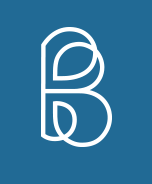Date of Award
2022
Document Type
Thesis
Degree Name
Master of Science in Education (MSEd)
First Advisor
Nilda Bayron-Resnick
Abstract
This 3rd grade curriculum aims to serve two main purposes: empowering students with knowledge to alleviate some of their climate change anxiety and to prevent them from developing harmful, hard to break habits, like ubiquitous plastic consumption/ overconsumption in general, by giving them the tools to do better. There is an emphasis on reactivating solutions we already have but stopped employing, to shift focus from reinventing the wheel towards reinventing the way the driver sees the wheel and remembering the processes/habits of mind that enabled the wheel to once function without fueling our destruction. To begin, lessons focus on understanding the key terms reduce, reuse, recycle and examining their order as well as the reasons why that is important to know and honor. Immediately after, children are thrust into their first hands-on recycling experiences which also act as their community service initiatives. They learn about taking direct action by collecting and remaking crayons through the process of melting down broken bits in molds, as well as how to partner with companies like Crayola to collect and ship markers for recycling since melting down plastic is too hazardous to do ourselves. Next, they’ll explore composting, how it works, its purpose (to keep things out of landfills /create a natural soil replenisher) and what materials do/do not biodegrade which also plants a seed in their minds about natural versus unnatural materials/where everyday things come from, including soil. While composting clarifies the definition of recycling (breaking things into their smallest parts to be reborn as something new) it also ignites a spark of recognition essential to what comes next. As nature’s recycling, composting is the most original, traditional practice that exists, so original to this planet that it did not require human action long ago. That initial ember lights the way to other traditional practices/beliefs, like sewing and making things last through conscious care and creativity. Repair will be examined and added to the more commonly used 3R’s, followed by a class activity in which students learn basic sewing skills using community sourced fabric as a means of simultaneously practicing repair, reuse and consequently reduce, by purposefully choosing to make functional items like shopping bags and handkerchiefs that replace their disposable counterparts.
Recommended Citation
McCloskey, C. (2022). Environmental Studies Curriculum. New York : Bank Street College of Education. https://educate.bankstreet.edu/independent-studies/397
Included in
Curriculum and Instruction Commons, Early Childhood Education Commons, Science and Mathematics Education Commons



Comments
Studies in Education (Program of study)